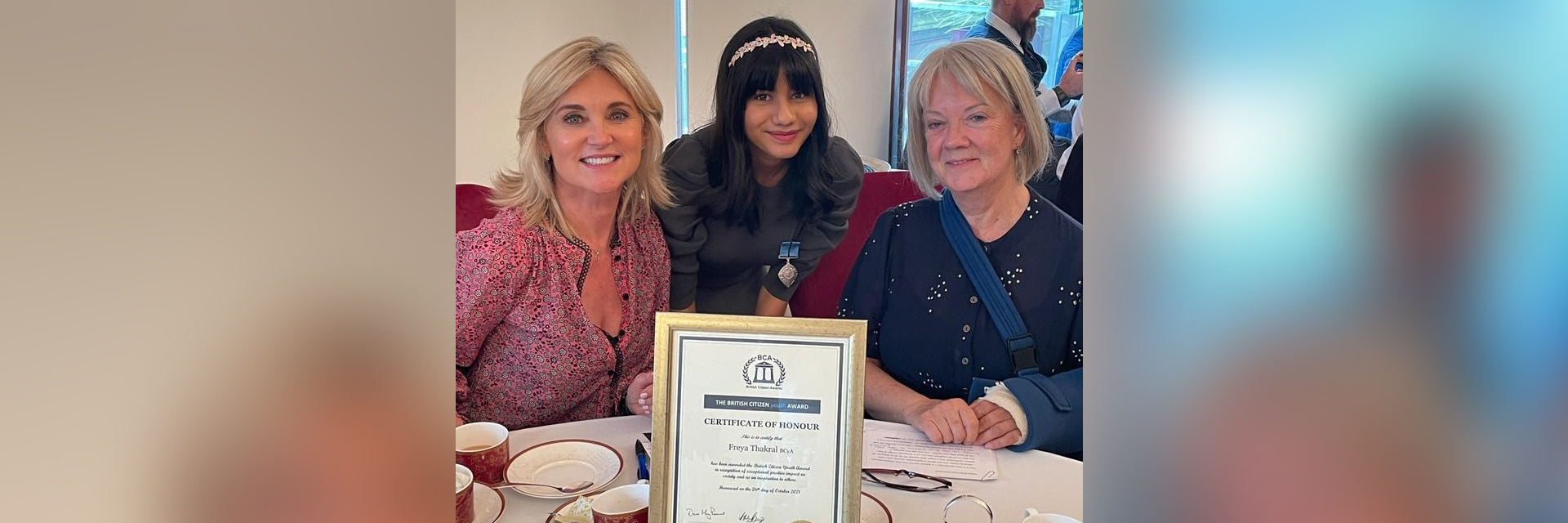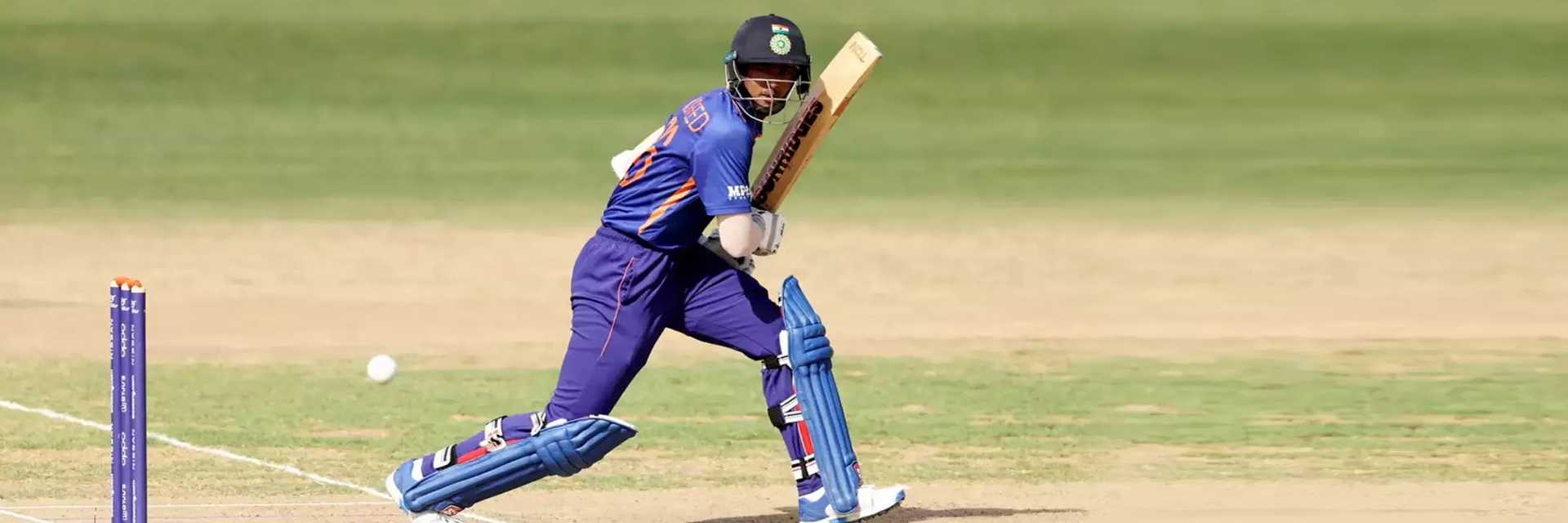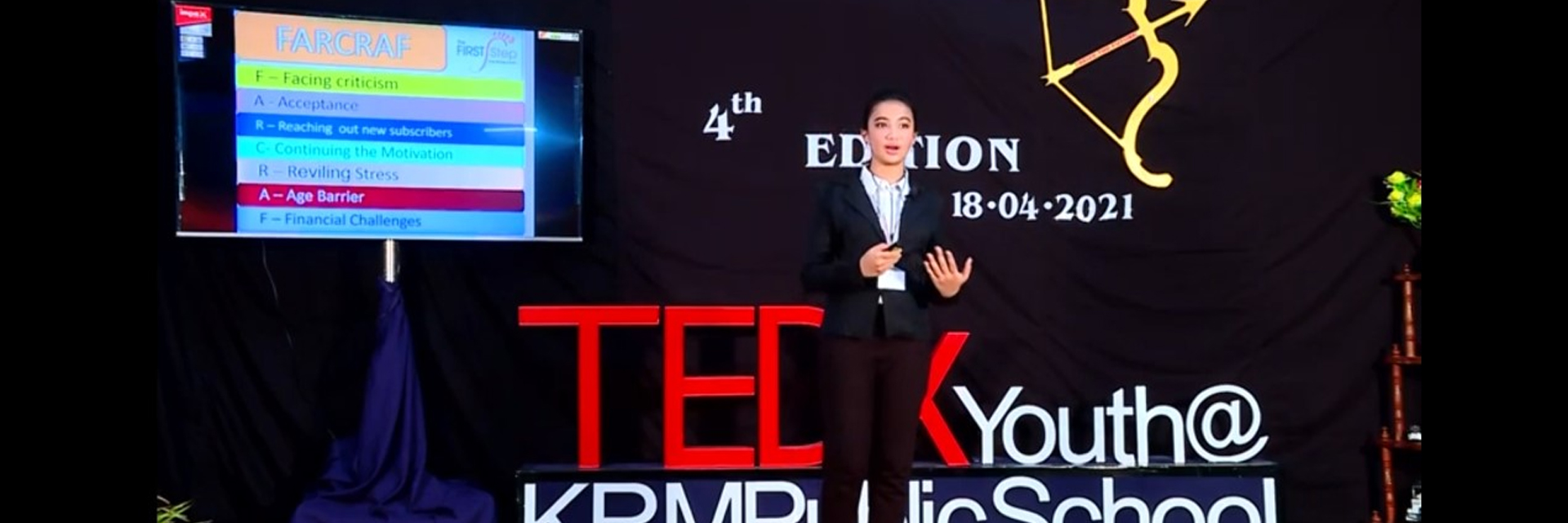(February 16, 2022) Frantically scribbling away ideas for a startup in 2019, Freya Thakral stumbled upon the huge plastic waste menace. The then 13-year-old created an app that recycles plastic, and even helps ragpickers live dignified life. The same year, India generated over 34 lakh tons of plastic waste, and the teenager knew it was time to take matters into her hand. Freya’s Recycler App, a free door-to-door waste collection service won her the Diana Award 2020. “I had no idea that my work was creating such a huge difference. The award was a validation of sorts, and has made me more comfortable about the path that I have taken,” she tells Global Indian.
Incredibly, this isn’t the only app that made Freya a global name. The 15-year-old won the British Citizen Youth Award 2021 for empowering girls to express themselves through her wellbeing app Curiousify. An initiative that began during the pandemic, it helps women deal with mental health issues.
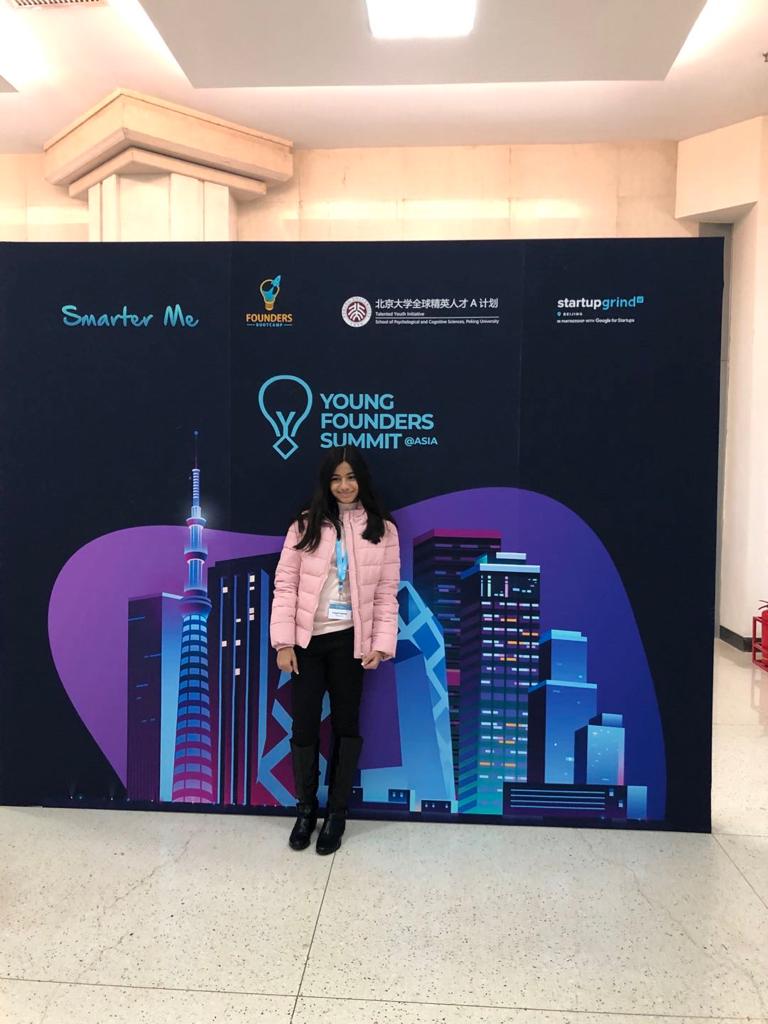
Freya Thakral at Young Founders Summit
When adventure gave her ideas
Born in 2006 to a teacher-father and a homemaker-mother in the UK, Freya moved to Nepal with family at six owing to her dad’s sense of adventure. “After a year-and-a-half in Nepal, we moved to Delhi which was my home for almost five years,” says the 15-year-old who enrolled in the British School then. Fitting in was a task as neither was she “academically inclined” nor did she have “any particular hobbies.” However, things shifted for the teenager when she decided to participate in the Young Founders Summit, a global start-up competition and accelerator programme. There, Freya came up with the recycling app.
“Since I stayed in the UK and Nepal, I had seen the way waste was disposed. If England has a set system of disposing, open dumping of solid waste was a common practice in Nepal. In Delhi too, plastic was mixed with other waste, making it difficult to recycle. I realised no one was encouraged to recycle. That’s when the idea of a Recycler App struck me,” smiles the innovator who then involved ragpickers to help them in their vulnerability.
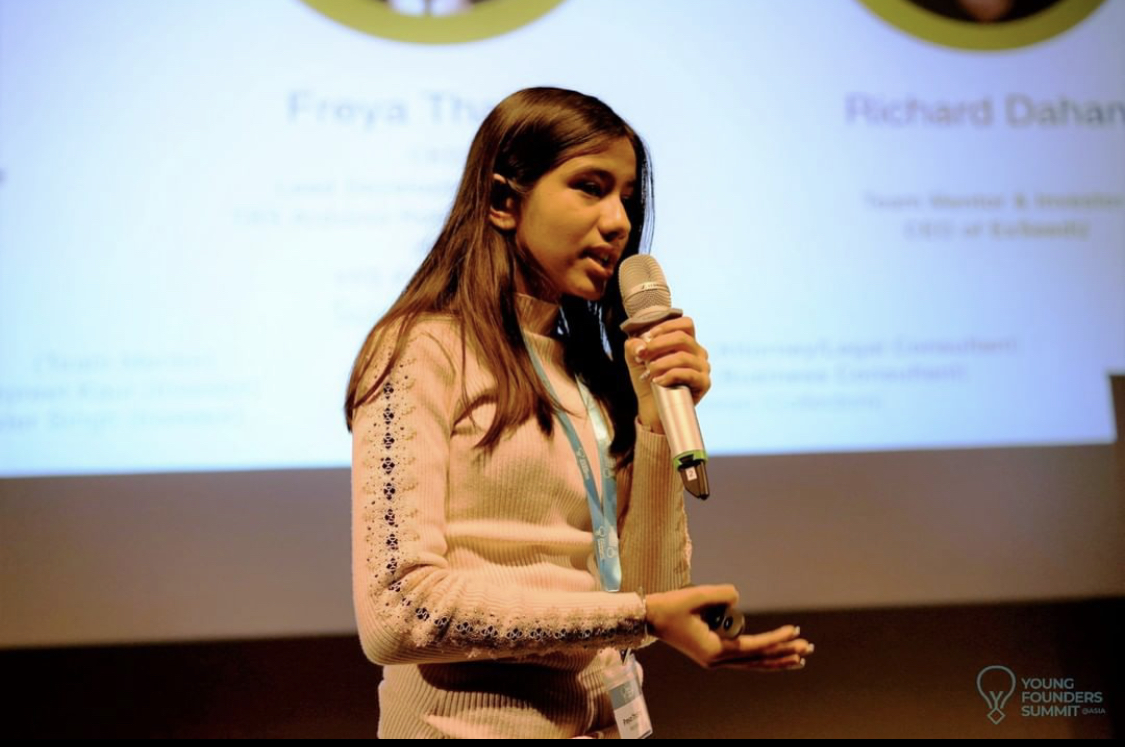

From “rags” to sustainable riches
It was after speaking to marginalised ragpickers in her locality, many of them children, Freya realised the need to build a more sustainable method of recycling. Driven by a passion to transform the lives of ragpickers, she decided to build the app to connect users with ragpickers.
The summit helped her find her first investor. With funds pouring in, she set up a warehouse in Ghaziabad and paid money to ragpickers. “A judge liked my idea, and even got me in touch with an investor who helped me understand the business side,” says the Class 10 student who had to learn coding online to develop the app with a little help from her father.
Launched in June 2019 on iOS, the app was initially available in South Delhi. “Anyone who wanted to avail the services could simply slot a date and time, and the ragpicker would collect plastic at the doorstep, which was sent to a recycling plant,” explains the young activist who at first started with only three collectors, and soon the number grew to 10.
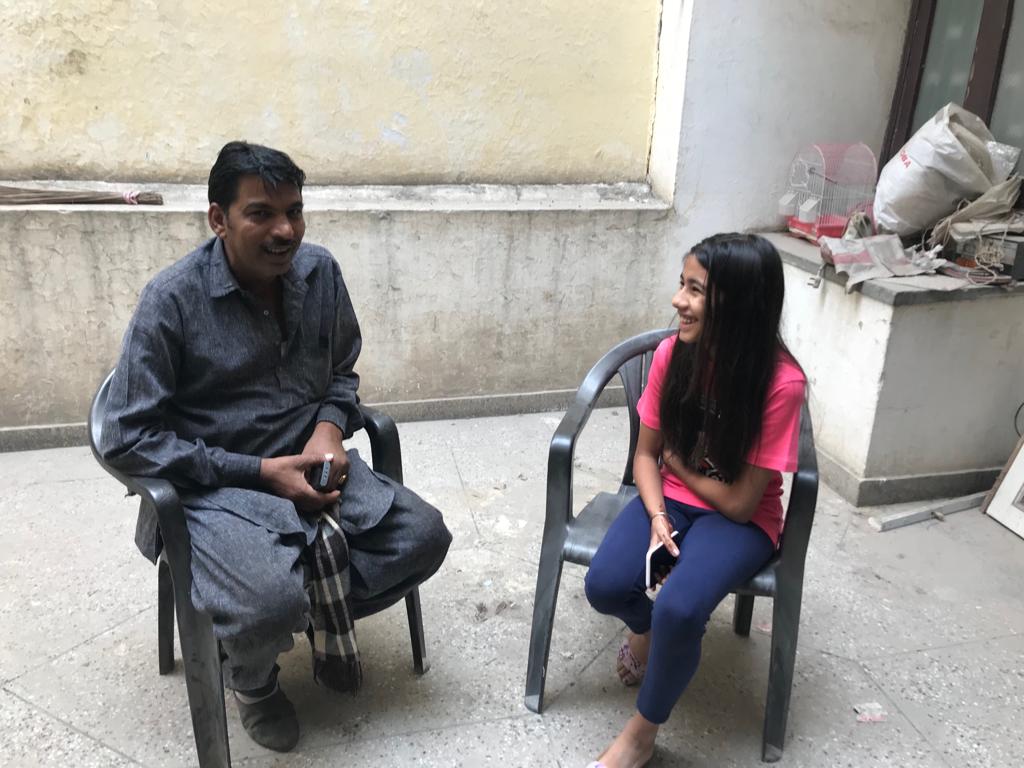

Freya Thakral with the middleman
However, convincing ragpickers to work wasn’t easy. “Being so young, not many believe in your vision. So, it took time building trust. We worked with a middleman who had access to the app, and would send ragpickers to homes as not everyone had a touchscreen phone,” explains the Diana Awardee. Her motto was to improve the lives of ragpickers, and employ them. “Instead of roaming the streets, they could reach people who required their services. We would also pay a large part of the money we received from recycling to them,” adds the Brighton School Bangkok student who had 500 active users on the app that she calls the “Uber of recycling.”
Awards & glory thanks to a vision
Freya won the Diana Award 2020 for her app, and it completely “surprised” her.
“I had no idea that my work was getting noticed. While I couldn’t receive the award in person due to the pandemic, it was great connecting with those doing noteworthy work,” smiles the Diana Awardee.
Recycler’s operations are on hold since the pandemic began in 2020. “Collectors weren’t allowed into people’s houses. Since many came from squatter settlements, people were uncomfortable having them near during Covid-19. I, too, moved to the UK, thus it was hard to manage,” reveals Freya who wasn’t sure of “putting the burden of the business on someone else” in her absence. A handful of old users still use the app, and avail services.
Helping those struggling in the pandemic
As lockdown put a spade on everything, Freya was busy creating the app Curiousify which focusses on wellbeing and the mental health of young women. After experiencing emotional difficulties, she needed a constructive outlet to express herself. “I realised many young women going through issues were exposed to negative and incorrect information, thus exacerbating the situation. So, I decided to bring a sense of community with Curiousify,” reveals the girl who offers a curated collection of bite-sized articles and videos that are positive and helpful. The mental health campaigner won the British Citizen Youth Award 2021 for empowering girls to express themselves.
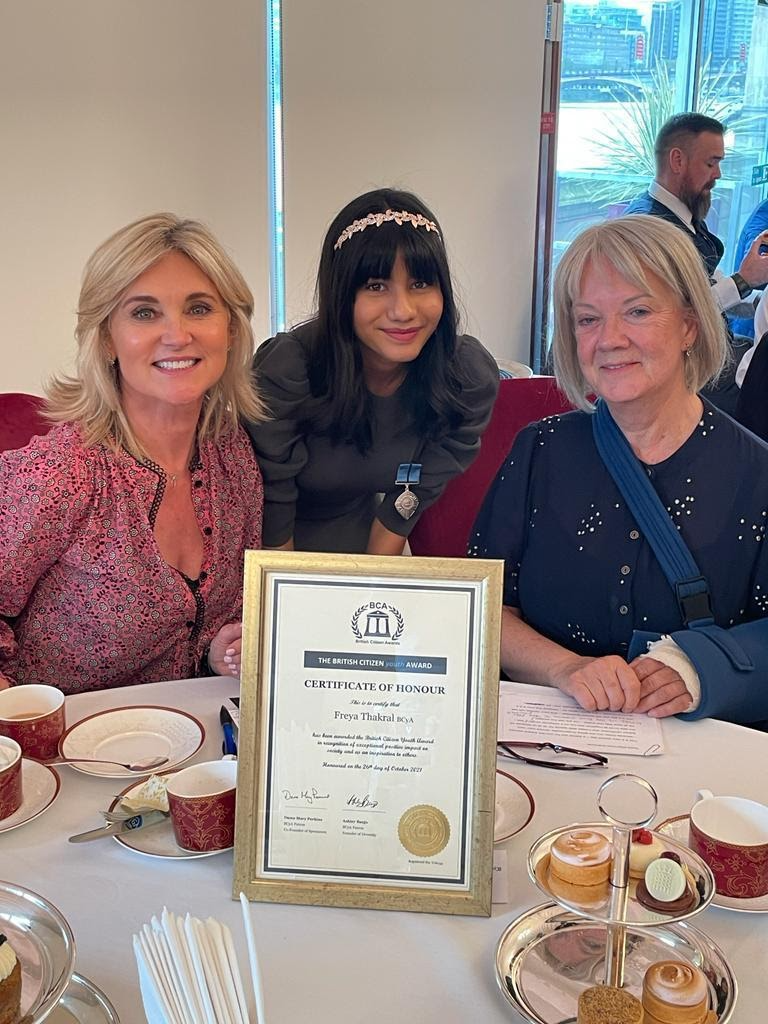

Freya Thakral at the British Citizen Youth Award 2021
Freya is now bettering the app by adding new features like a language convertor to make it accessible to a larger audience. Looking forward to working for something bigger than her, the Diana Awardee avers, “Joining the United Nations is definitely on my list.”
She credits the awards for opening her mind to possibilities. “The current generation needs to get out of their comfort zone,” she implores.
- Follow Freya Thakral on Linkedin

